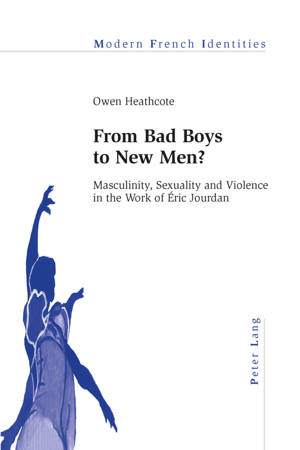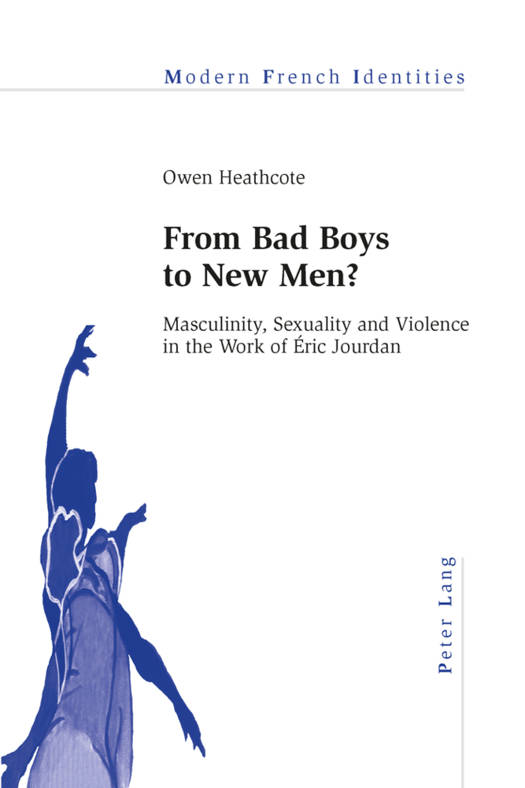
- Afhalen na 1 uur in een winkel met voorraad
- Gratis thuislevering in België vanaf € 30
- Ruim aanbod met 7 miljoen producten
- Afhalen na 1 uur in een winkel met voorraad
- Gratis thuislevering in België vanaf € 30
- Ruim aanbod met 7 miljoen producten
Zoeken
From Bad Boys to New Men?
Masculinity, Sexuality and Violence in the Work of Éric Jourdan
Owen Heathcote
€ 75,45
+ 150 punten
Omschrijving
This book is the first critical survey of the work of Éric Jourdan. Jourdan first came to public attention as a schoolboy in 1955, when he published Les Mauvais anges, a sulphorous novel of adolescent male-to-male love, which was banned by the censors in 1956 and again in 1974. It did not officially appear until 1984. Despite the ban, and despite ongoing censorship, Jourdan continues to write novels, short stories and plays. His many books include the 'trilogy' Charité, Révolte and Sang, and other equally uninhibited texts such as Le Garçon de joie, Aux gémonies and Le Jeune soldat. More recent publications include short stories, historical novels (Sans lois ni dieux, Lieutenant Darmancour) and the more autobiographical text Trois coeurs.
This study charts Jourdan's writing career from Les Mauvais anges to the present day, situating his work in the context of writers from Peyrefitte and Montherlant to Guibert, Dustan and Guyotat. The analysis concentrates on three main themes: boyhood and masculinity; sex and (homo)sexuality; and violence and death. Throughout, a number of questions are paramount. What is the connection between masculinity and violence? How does Jourdan reconcile joie de vivre with pain and punishment? Do his young male protagonists progress from bad boys to new men? In what ways can his texts be seen as homoerotic, homosexual, gay or queer? What, ultimately, is the connection between sex, sexuality and writing in Jourdan?
The book includes detailed bibliographies of Jourdan's works and, for the first time since its original, controversial publication in Arcadie, his short story 'Le Troisième but'.
This study charts Jourdan's writing career from Les Mauvais anges to the present day, situating his work in the context of writers from Peyrefitte and Montherlant to Guibert, Dustan and Guyotat. The analysis concentrates on three main themes: boyhood and masculinity; sex and (homo)sexuality; and violence and death. Throughout, a number of questions are paramount. What is the connection between masculinity and violence? How does Jourdan reconcile joie de vivre with pain and punishment? Do his young male protagonists progress from bad boys to new men? In what ways can his texts be seen as homoerotic, homosexual, gay or queer? What, ultimately, is the connection between sex, sexuality and writing in Jourdan?
The book includes detailed bibliographies of Jourdan's works and, for the first time since its original, controversial publication in Arcadie, his short story 'Le Troisième but'.
Specificaties
Betrokkenen
- Auteur(s):
- Uitgeverij:
Inhoud
- Aantal bladzijden:
- 266
- Taal:
- Engels
- Reeks:
- Reeksnummer:
- nr. 113
Eigenschappen
- Productcode (EAN):
- 9783034307369
- Verschijningsdatum:
- 12/12/2013
- Uitvoering:
- Paperback
- Formaat:
- Trade paperback (VS)
- Afmetingen:
- 152 mm x 229 mm
- Gewicht:
- 394 g

Alleen bij Standaard Boekhandel
+ 150 punten op je klantenkaart van Standaard Boekhandel
Beoordelingen
We publiceren alleen reviews die voldoen aan de voorwaarden voor reviews. Bekijk onze voorwaarden voor reviews.











